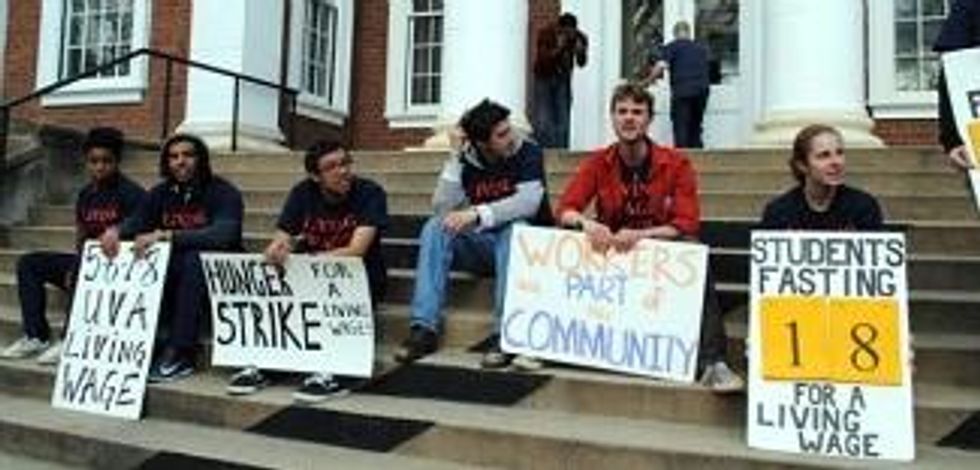

SUBSCRIBE TO OUR FREE NEWSLETTER
Daily news & progressive opinion—funded by the people, not the corporations—delivered straight to your inbox.
5
#000000
#FFFFFF
To donate by check, phone, or other method, see our More Ways to Give page.


Daily news & progressive opinion—funded by the people, not the corporations—delivered straight to your inbox.
How inert can the Democratic Party be? Do they really want to defeat the Congressional Republicans in the fall by doing the right thing?
A winning issue is to raise the federal minimum wage, stuck at $7.25 since 2007. If it was adjusted for inflation since 1968, not to mention other erosions of wage levels, the federal minimum would be around $10.
Here are some arguments for raising the minimum wage this year to catch up with 1968 when worker productivity was half of what it is today.

Dear Common Dreams reader, The U.S. is on a fast track to authoritarianism like nothing I've ever seen. Meanwhile, corporate news outlets are utterly capitulating to Trump, twisting their coverage to avoid drawing his ire while lining up to stuff cash in his pockets. That's why I believe that Common Dreams is doing the best and most consequential reporting that we've ever done. Our small but mighty team is a progressive reporting powerhouse, covering the news every day that the corporate media never will. Our mission has always been simple: To inform. To inspire. And to ignite change for the common good. Now here's the key piece that I want all our readers to understand: None of this would be possible without your financial support. That's not just some fundraising cliche. It's the absolute and literal truth. We don't accept corporate advertising and never will. We don't have a paywall because we don't think people should be blocked from critical news based on their ability to pay. Everything we do is funded by the donations of readers like you. Will you donate now to help power the nonprofit, independent reporting of Common Dreams? Thank you for being a vital member of our community. Together, we can keep independent journalism alive when it’s needed most. - Craig Brown, Co-founder |
How inert can the Democratic Party be? Do they really want to defeat the Congressional Republicans in the fall by doing the right thing?
A winning issue is to raise the federal minimum wage, stuck at $7.25 since 2007. If it was adjusted for inflation since 1968, not to mention other erosions of wage levels, the federal minimum would be around $10.
Here are some arguments for raising the minimum wage this year to catch up with 1968 when worker productivity was half of what it is today.

How inert can the Democratic Party be? Do they really want to defeat the Congressional Republicans in the fall by doing the right thing?
A winning issue is to raise the federal minimum wage, stuck at $7.25 since 2007. If it was adjusted for inflation since 1968, not to mention other erosions of wage levels, the federal minimum would be around $10.
Here are some arguments for raising the minimum wage this year to catch up with 1968 when worker productivity was half of what it is today.
